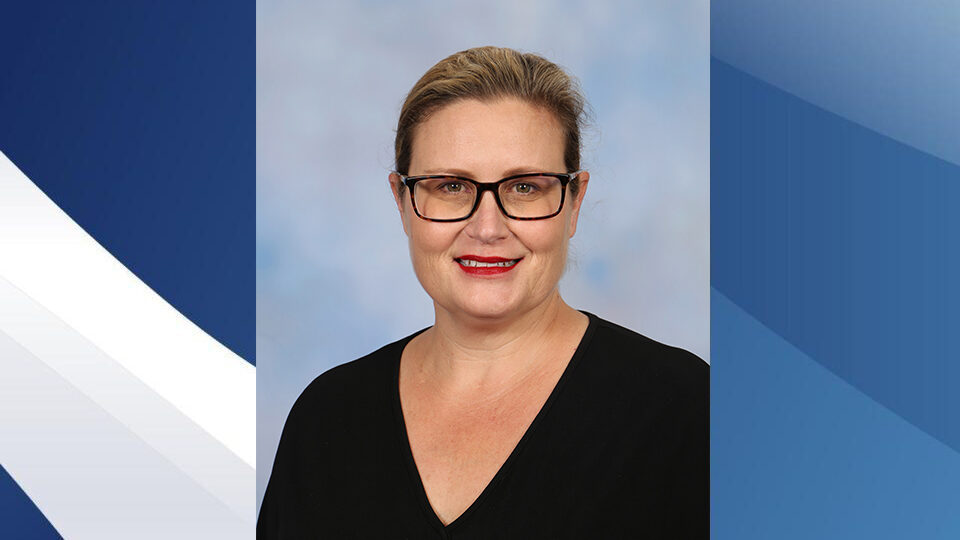
From the Leader of Wellbeing


STUDENT ACCEPTABLE USE OF TECHNOLOGY AGREEMENT: SCS DOCUMENT
1.1 Allowing students to use digital devices and providing internet services in Sydney Catholic schools is done so in order to support their educational and administrative needs.
- a) Students must behave in an ethical manner when using digital devices, whether school owned or
student provided BYO devices to access resources, communicate and interact with others
- b) Online behaviour should at all times demonstrate a respect for the dignity of each person
- c) It is never acceptable to use school or personal digital devices to harass, bully or humiliate others.
1.3 The school reserves the right to capture, store and review all online activity and content created or accessed via school provided services. Materials collected will remain the property of the school and SCS. School devices or BYO Devices may be confiscated or accessed where there is a reasonable belief that:
- a) There has been or may be a breach of the school rules or policy (SEE BELOW 3.1, 3.3, 4.1, 4.3
and PROCEDURE)
- b) There may be a threat of harm to a student or others
4.1 When using school or BYO devices to access school provided email and internet services students will:
- a) Ensure that they access the internet only within the school proxy and filtering system provided (not use their personal hotspot)
- b) Ensure that communication through internet and email services is related to learning (not social – no chat or messaging through laptop)
STUDENT MOBILE DEVICE USE POLICY: MSCW DOCUMENT3.1 It is the College’s position that there will be no use of mobile devices from the time a student enters the College gates until the final bell at 3:15pm. 3.3 Messaging or texting on a mobile device and/or laptop during the course of a school day is considered inappropriate use and will result in devices being confiscated for the day as per the Classification of Unacceptable Student Behaviours. In some circumstances there may be a need for a parent to collect the mobile device from the College. 4.1 Mobile devices must be turned off and remain out of sight during the school day. This includes moving between classes and activities. 4.2 The expectation is that mobile devices are kept in a locker or school bag.4.3 Mobile devices must not be used to photograph or record any person(s) or event(s) without express permission of the person(s) or event organiser.4.5 Listening to music whilst working in class is not considered appropriate.Procedure6.1 Where a student’s mobile device is confiscated for the day, at the teacher’s earliest opportunity, the phone will be taken to the General Administration Office. 6.2 Where there is a serious matter and breach of the Acceptable Use of Technology Policy a confiscated mobile device may be handed directly to the Leader of Wellbeing or the Assistant Principal.6.3 A student can collect their confiscated mobile device from the General Administration Office at the end of the day.


ARTICLE: Helping Girls Regain Their Confidence and Motivation Andrew Fuller
Website: https://andrewfuller.com.au/


From the esafety office:
How to use parental controls and other tools to maximise online safety in your home.

A SPECIAL REPORT: Digital Reputation
Social media has become such an integral part of a teenager’s life. However, many miss out on some critical social skills with most communicating whilst looking at a screen instead of another person! Statistics show that 60 per cent of 10-11 year olds are using at least one social media site, with the majority using age-restricted platforms. What kids do, post and say online is permanent and most are not mature enough to manage their own digital footprint. Friendships, relationships and even future job prospects are all put at risk.Parents need to be aware of what picture their children are painting of themselves online. Unfortunately, many parents do not see the dangers inherent of these sites, as they form opinions based on their own experience. But predators are usually not interested in grooming adults. Over the years there has been a dramatic increase in the number of primary schoolers owning mobile phones, highlighting the importance to teach kids about the dangers of social media and the implications it can have.In this edition of SchoolTV, parents will learn how to talk to their children about the inherent dangers of social media and how to educate their kids to be responsible users in the online world we live in.We hope you take time to reflect on the information offered in this edition of SchoolTV and we always welcome your feedback. If you have any concerns about your child, please contact her Tutor teacher, House Coordinator or the school counsellor for further information or seek medical or professional help.Here is the link to the Social Media & Digital Reputation edition of SchoolTVSocial Media & Digital Reputation| Marist Sisters’ College – Woolwich
Year 11 Community Time
In week 5 Year 11 were provided the opportunity to listen to a presentation by batyr.
Batyr spoke to all Year 11 and 2 young adults shared their personal experience of mental health that was negatively impacting on the life they wanted to live.
These were stories of hope that support is out there and all you need to do is ask for it.
They also provided students with some suggestions on how to manage their emotions. Such as Changing locations, listening to music that is calming, engage in some physical activity.

